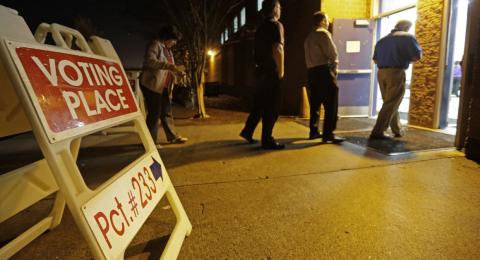North Carolina voters not affiliated with the Republican or Democratic Parties cannot serve on the state's Board of Elections. That's right, state law says only registered Republicans and Democrats can. This means tough luck for independents or third party voters.
Well, one N.C. attorney hopes to change this.
Michael Crowell, a reportedly well-known election law attorney in North Carolina, recently filed a lawsuit against the state and its Board of Elections and Ethics Enforcement. Crowell's case? State law denies unaffiliated voters the same rights as major party voters to be members of state and county election boards.
Crowell filed the lawsuit on his own behalf, stating that he is otherwise qualified to serve on the board of elections, but state law violates his First Amendment rights to free speech and association, and his Fourteenth Amendment right to equal protection "by requiring as a condition of serving on an elections board he affiliate with either the Democratic or Republican party despite his independent political beliefs."
Some facts presented by Crowell:
- "The State Board supervises all elections in the state." It appoints members of county election boards, trains and supervises every county board of elections, investigates election law violations, determines the form and content of ballots, etc. Needless to say, the board has a lot of control over elections.
- County election boards appoint all local election and precinct officials.
- As of April 15, over 2 million voters were registered independent.
- Registered independents outnumbered Republicans and Democrats in 8 counties. Independents outnumbered Republicans in an additional 39 counties, and Democrats in 22 counties.
- Yet independent voters are not and have never been represented on the state board of elections or county boards because of a law that prevents non-major party voters from serving on these boards.
Odd that only registered members of the Republican and Democratic Parties can serve on election boards that control the administration of taxpayer-funded elections. North Carolina is not alone, though. In several counties in New York, for example, voters must be registered with the Republican or Democratic Party in order to work at polling locations.
Is that fair? That only registered members of two private political parties can fill roles that are meant to administer elections in an impartial and nonpartisan manner? It certainly doesn't sound fair.
Read the full complaint:
Photo Source: AP
